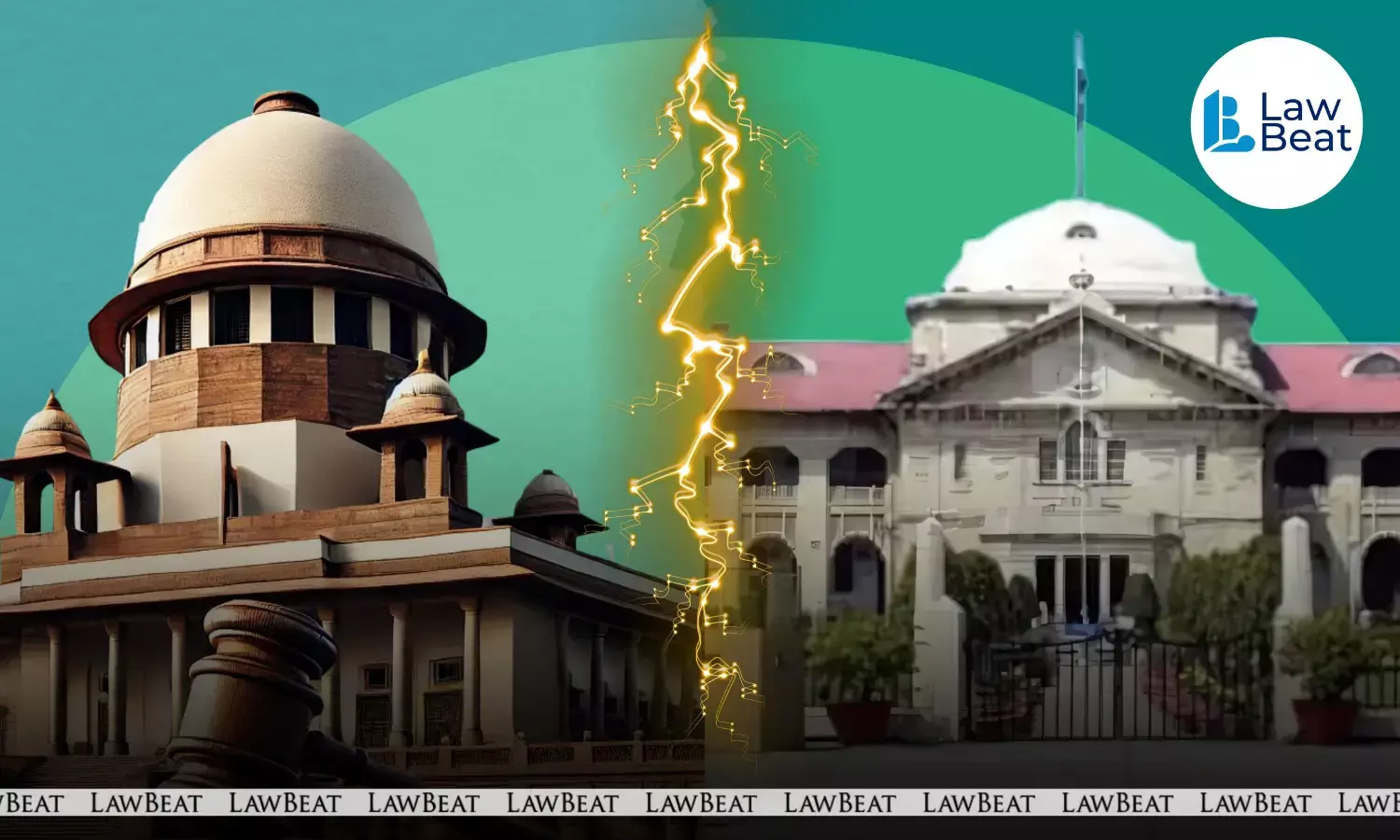Supreme Court Slams Allahabad HC for Copy-Paste Orders Treating Witness Protection as Bail Substitute

Supreme Court Raps Allahabad High Court for 40 “cyclostyled” orders
The Supreme Court on September 2, 2025 deprecated the practice prevailing in the Allahabad High Court of passing cyclostyled template orders on the incorrect assumption that the Witness Protection Scheme, 2018 is a substitute for the cancellation of bail.
A bench of Justices J B Pardiwala and Sandeep Mehta said it was dismayed to note that the High Court has been treating the scheme as an alternative remedy, while deciding pleas for cancellation of bail. “According to the High Court, scheme is an alternative remedy. We are at pains to note that we came across at least 40 recent orders, that have been passed in the last one year alone, as per the records available from the official website of the Allahabad High Court,” the bench said.
The judges annexed a list of such cases with their order dates and pointed out that the orders were a verbatim copy of each other. They observed that the practice of passing such template orders has been in vogue for more than two years. What disturbed the court further was the role of public prosecutors, who instead of assisting judges with the correct legal position, themselves urged that complainants be directed to seek recourse under the Witness Protection Scheme rather than pressing for cancellation of bail, even when accused persons had allegedly threatened or intimidated witnesses in breach of bail conditions.
The appeal before the Supreme Court was filed by Phireram, who had moved the Allahabad High Court seeking cancellation of bail of accused persons in a murder case on the ground that they had extended threats. The High Court, however, disposed of his plea directing him to seek protection under the 2018 scheme. The complainant had also lodged two FIRs in 2024 regarding the threats.
Setting aside the order, the Supreme Court remanded the matter back to the High Court with a direction to rehear the cancellation plea on its own merits. The bench described the order passed by the High Court as “very curious” and emphasised that the correct approach would have been to apply settled principles of law governing bail cancellation.
The court clarified that when there is a clear breach of bail conditions and the complainant is able to show prima facie that the accused is abusing the liberty granted to him, then the Witness Protection Scheme has no role to play. The bench stressed that the scheme was never conceived as an alternative to the provisions of the Code of Criminal Procedure or the Bharatiya Nagarik Suraksha Sanhita, 2023 in relation to bail cancellation.
Tracing the legislative background, the court noted that several committees had for years pressed for a comprehensive witness protection mechanism due to rising instances of witnesses turning hostile under threats and intimidation. This was despite provisions in the law enabling cancellation of bail if an accused attempted to interfere with witnesses. The Witness Protection Scheme was intended to shield witnesses from the corrosive effects of intimidation, to ensure that testimony during trial remained free from fear or coercion.
The bench drew a sharp distinction between the protective canopy offered by the scheme and the judicial power of courts to cancel bail. According to the judgment, the scheme is remedial and curative, designed to mitigate the effects of threats once they occur, while bail cancellation is preventive and supervisory, exercised by courts to ensure that the trial is not polluted by intimidation. The former is a positive obligation of the State, while the latter flows from the inherent power of courts to safeguard justice.
The court warned that substituting one for the other denudes the authority of courts and renders bail conditions meaningless. It said bail is not merely a mechanical order releasing a person but a recognition that liberty is the norm, subject to the condition that it should not be abused to thwart justice. Conditions imposed under Sections 437(3) or 439(2) of the CrPC are substantive obligations and cannot be brushed aside on the pretext of an alternative remedy.
The bench also noted that the Witness Protection Scheme is applicable to serious offences punishable with death, life imprisonment or terms of seven years and above, as well as certain offences against women. However, it is not a comprehensive answer for every form of threat. The scheme addresses heinous crimes and specific offences but cannot be treated as a straitjacket solution. The standards for granting protection and for cancelling bail are different and to compel a witness to pursue protection instead of securing cancellation of bail is unjust.
The judgment concluded that the purpose of the scheme is to ensure witnesses are not reduced to silence or falsehood by threats, but it does not displace the established jurisprudence on bail. Both frameworks operate in tandem, each serving a distinct purpose in maintaining the integrity of trial proceedings.
Directing circulation of its judgment, the Supreme Court ordered that a copy be sent to every High Court and specifically to the Chief Justice of the Allahabad High Court for corrective steps.
Case Title: Phireram vs State of Uttar Pradesh & Anr
Date of Judgment: September 2, 2025
Bench: Justices J B Pardiwala and Sandeep Mehta
